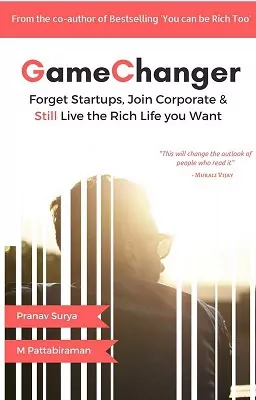In this article, we explain why investors and AMCs need SEBI’s help in tackling the debt fund taxation rule to come into force from 1st April 2023.
Taxation status from 1st April 2023
- Funds holding 65% or more of Indian equity or Indian equity ETFs are equity funds (no change in this)
- Funds holdings less than 65% Indian equity but more than 35% Indian equity are non-equity funds (we will refer to these as class I). Gains from units purchased on or before 3Y are short-term gains and taxed as per slab, and gains from older units are taxed at 20% with indexation (no change in this).
- The big change: Funds holding less than or equal to 35% equity will be taxed as per slab regardless of the age of the unit. Let us call these class II non-equity funds. This will only apply to fresh purchases made from 1st April 2023.
- This will also affect all international equity funds and gold funds.
Many non-equity funds must change their investment mandate to keep the AUM flowing. However, the SEBI categorization rules have many restrictions in place.
Take, for example, Parag Parikh Conservative Hybrid Fund. This is now mandated to hold only a maximum of 25% equity as a conservative hybrid fund.
The Balanced Hybrid is one category that has had no takers so far. That is about to change. Funds in this category can hold “40% to 60% investment in equity & equity related instruments; and 40% to 60% in Debt instruments”,
This means they would be classified as class I non-equity funds and eligible for 20% LTCG tax with indexation. PPFAS (if they choose to) can change the mandate of their conservative hybrid fund to a balanced hybrid fund. They can include a minimum of 15% arbitrage to ensure the fund’s volatility does not change too much.
Other fund houses cannot freely implement such changes because of a clause in the categorization rules: “Mutual Funds will be permitted to offer either an Aggressive Hybrid fund or Balanced fund.”
In light of the budget 2023 amendments, SEBI should consider removing this clause some that at least one “popular” fund from each AMC’s portfolio can be converted to a balanced hybrid fund.
The money market segment comprising overnight, liquid, and money market funds cannot be tampered with, and until interest rates fall, retail investors will not favour these funds. Tough luck!
Sebi can also consider relaxing rules for other categories to help fund houses adjust their portfolios.
For example, take the case of long-duration funds. These must currently invest in “debt & Money Market Instruments such that the Macaulay duration of the portfolio is greater than seven years”.
Suppose SEBI can modify this to “invest in debt & Money Market Instruments such that the Macaulay duration of the bond portfolio is greater than seven years”. A fund manager can then include the 36% arbitrage to make it a class I non-equity fund.
Admittedly these are naive suggestions and are a long shot. Still, at least the long-term non-equity funds* like international funds (FOF or direct investments), long-duration, gilt, credit risk, corporate bond, banking and PSU, dynamic bond, retirement funds, children’s funds etc., need some tax advantage to compensate investors for the risk they are taking.
* From the point of view of taxation, there are only equity and non-equity funds.
It pains me to write this, as I have always advocated style purity in debt funds. But there is no point in being style pure when no one wants to invest in a fund. The debt fund industry still suffers from the Franklin crisis, and this rule change seems like the last nail in the coffin.
I agree that the above is a far-fetched suggestion, but some help is necessary to enable investor participation in debt funds. Will SEBI oblige?
If they don’t and the finance ministry rejects the representation from AMFI, then arbitrage funds and equity savings funds will become popular.
Even with the new rule change, a long-term debt fund investment has some tax advantage over an FD or an RD. Bank deposits are taxable each year, often with a mandatory TDS. Mutual funds are only taxable on redemption. So over a period of time, this results in better post-tax returns due to the time value of money. However, it is not adequate compensation for the risk a debt fund investor takes, and some help from the regulator would be much appreciated. Interesting days ahead.
Do share this article with your friends using the buttons below.
 Enjoy massive discounts on our courses and robo-advisory tool!
Enjoy massive discounts on our courses and robo-advisory tool! 
Use our Robo-advisory Excel Tool for a start-to-finish financial plan! ⇐ More than 1000 investors and advisors use this!
New Tool! => Track your mutual funds and stocks investments with this Google Sheet!
- Follow us on Google News.
- Do you have a comment about the above article? Reach out to us on Twitter: @freefincal or @pattufreefincal
- Join our YouTube Community and explore more than 1000 videos!
- Have a question? Subscribe to our newsletter with this form.
- Hit ‘reply’ to any email from us! We do not offer personalized investment advice. We can write a detailed article without mentioning your name if you have a generic question.
Get free money management solutions delivered to your mailbox! Subscribe to get posts via email!
Explore the site! Search among our 2000+ articles for information and insight!
About The Author
 Dr M. Pattabiraman(PhD) is the founder, managing editor and primary author of freefincal. He is an associate professor at the Indian Institute of Technology, Madras. He has over nine years of experience publishing news analysis, research and financial product development. Connect with him via Twitter or Linkedin, or YouTube. Pattabiraman has co-authored three print books: (1) You can be rich too with goal-based investing (CNBC TV18) for DIY investors. (2) Gamechanger for young earners. (3) Chinchu Gets a Superpower! for kids. He has also written seven other free e-books on various money management topics. He is a patron and co-founder of “Fee-only India,” an organisation promoting unbiased, commission-free investment advice.
Dr M. Pattabiraman(PhD) is the founder, managing editor and primary author of freefincal. He is an associate professor at the Indian Institute of Technology, Madras. He has over nine years of experience publishing news analysis, research and financial product development. Connect with him via Twitter or Linkedin, or YouTube. Pattabiraman has co-authored three print books: (1) You can be rich too with goal-based investing (CNBC TV18) for DIY investors. (2) Gamechanger for young earners. (3) Chinchu Gets a Superpower! for kids. He has also written seven other free e-books on various money management topics. He is a patron and co-founder of “Fee-only India,” an organisation promoting unbiased, commission-free investment advice.
Our flagship course! Learn to manage your portfolio like a pro to achieve your goals regardless of market conditions! ⇐ More than 3000 investors and advisors are part of our exclusive community! Get clarity on how to plan for your goals and achieve the necessary corpus no matter what the market condition is!! Watch the first lecture for free! One-time payment! No recurring fees! Life-long access to videos! Reduce fear, uncertainty and doubt while investing! Learn how to plan for your goals before and after retirement with confidence.
Our new course! Increase your income by getting people to pay for your skills! ⇐ More than 700 salaried employees, entrepreneurs and financial advisors are part of our exclusive community! Learn how to get people to pay for your skills! Whether you are a professional or small business owner who wants more clients via online visibility or a salaried person wanting a side income or passive income, we will show you how to achieve this by showcasing your skills and building a community that trusts you and pays you! (watch 1st lecture for free). One-time payment! No recurring fees! Life-long access to videos!
Our new book for kids: “Chinchu gets a superpower!” is now available!

Most investor problems can be traced to a lack of informed decision-making. We have all made bad decisions and money mistakes when we started earning and spent years undoing these mistakes. Why should our children go through the same pain? What is this book about? As parents, what would it be if we had to groom one ability in our children that is key not only to money management and investing but to any aspect of life? My answer: Sound Decision Making. So in this book, we meet Chinchu, who is about to turn 10. What he wants for his birthday and how his parents plan for it and teach him several key ideas of decision making and money management is the narrative. What readers say!

Must-read book even for adults! This is something that every parent should teach their kids right from their young age. The importance of money management and decision making based on their wants and needs. Very nicely written in simple terms. – Arun.
Buy the book: Chinchu gets a superpower for your child!
How to profit from content writing: Our new ebook for those interested in getting side income via content writing. It is available at a 50% discount for Rs. 500 only!
Want to check if the market is overvalued or undervalued? Use our market valuation tool (it will work with any index!), or you buy the new Tactical Buy/Sell timing tool!
We publish monthly mutual fund screeners and momentum, low volatility stock screeners.
About freefincal & its content policy Freefincal is a News Media Organization dedicated to providing original analysis, reports, reviews and insights on mutual funds, stocks, investing, retirement and personal finance developments. We do so without conflict of interest and bias. Follow us on Google News. Freefincal serves more than three million readers a year (5 million page views) with articles based only on factual information and detailed analysis by its authors. All statements made will be verified from credible and knowledgeable sources before publication. Freefincal does not publish any paid articles, promotions, PR, satire or opinions without data. All opinions presented will only be inferences backed by verifiable, reproducible evidence/data. Contact information: letters {at} freefincal {dot} com (sponsored posts or paid collaborations will not be entertained)
Connect with us on social media
Our publications
You Can Be Rich Too with Goal-Based Investing
 Published by CNBC TV18, this book is meant to help you ask the right questions and seek the correct answers, and since it comes with nine online calculators, you can also create custom solutions for your lifestyle! Get it now.
Published by CNBC TV18, this book is meant to help you ask the right questions and seek the correct answers, and since it comes with nine online calculators, you can also create custom solutions for your lifestyle! Get it now.
Gamechanger: Forget Startups, Join Corporate & Still Live the Rich Life You Want
 This book is meant for young earners to get their basics right from day one! It will also help you travel to exotic places at a low cost! Get it or gift it to a young earner.
This book is meant for young earners to get their basics right from day one! It will also help you travel to exotic places at a low cost! Get it or gift it to a young earner.
Your Ultimate Guide to Travel
 This is an in-depth dive analysis into vacation planning, finding cheap flights, budget accommodation, what to do when travelling, and how travelling slowly is better financially and psychologically with links to the web pages and hand-holding at every step. Get the pdf for Rs 300 (instant download)
This is an in-depth dive analysis into vacation planning, finding cheap flights, budget accommodation, what to do when travelling, and how travelling slowly is better financially and psychologically with links to the web pages and hand-holding at every step. Get the pdf for Rs 300 (instant download)



